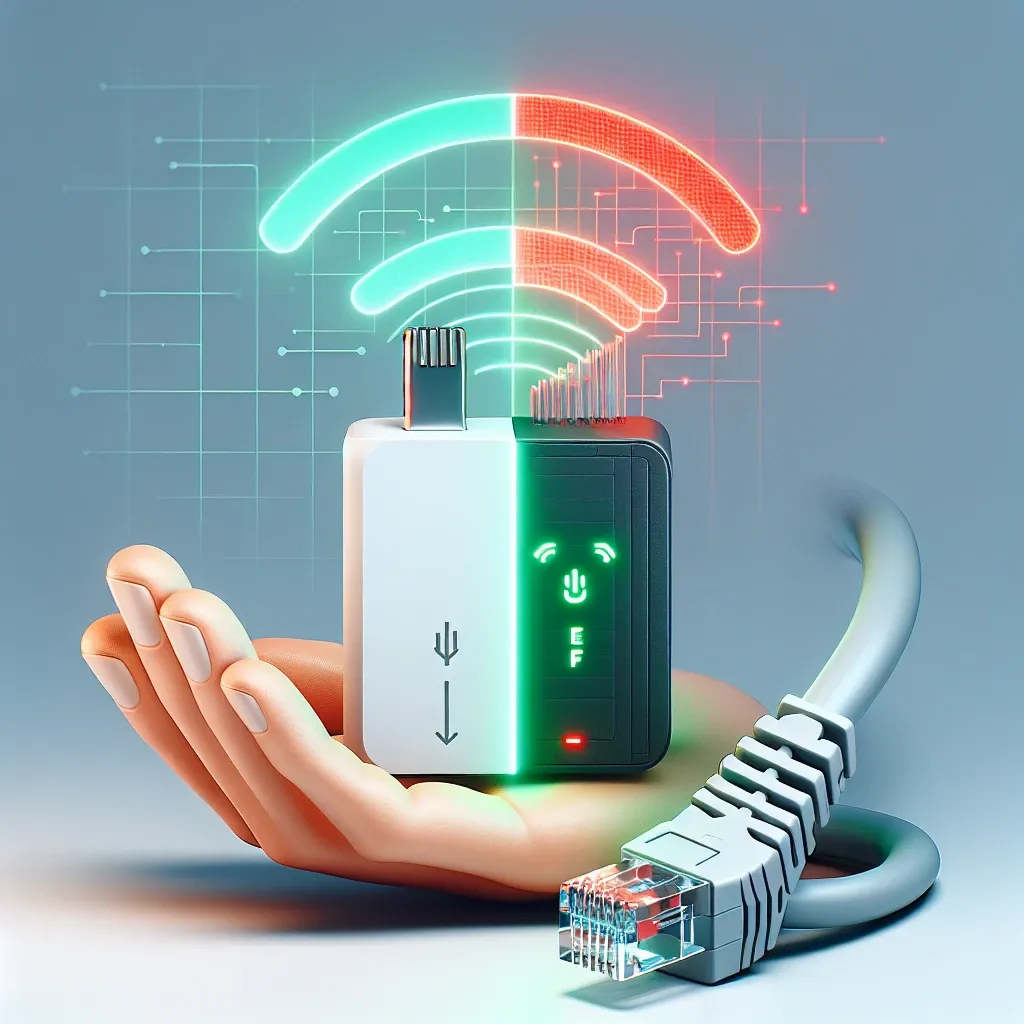Introduction
When setting up a home or office network, one common dilemma is choosing between a WiFi adapter and an Ethernet cable. Each has its pros and cons, but in recent years, the shift towards wireless connectivity has gained steam. This article delves into the numerous advantages of using a WiFi adapter over an Ethernet cable, shedding light on why it might be the better choice for your networking needs.
Table of Comparison
| Feature | WiFi Adapter | Ethernet Cable |
|---|---|---|
| Convenience | High | Medium |
| Installation | Easy | Moderate |
| Mobility | High | Low |
| Aesthetics | Minimal | Visible cables |
| Speed | Varies | Consistent |
Convenience
One of the primary advantages of using a WiFi adapter is its convenience. Unlike Ethernet cables that require a physical connection to your router, WiFi adapters allow you to connect to the network wirelessly. This means you can set up your device anywhere within the coverage area of your wireless router without worrying about running cables across rooms.
Easy Installation
Setting up a WiFi adapter is generally more straightforward than wiring your home or office with Ethernet cables. For most WiFi adapters, you simply plug the device into a USB port or use a built-in adapter on laptops. The installation process usually involves installing drivers, which is often automated. Ethernet, on the other hand, requires you to run cables from the router to each device, which can be labor-intensive and sometimes necessitates drilling holes through walls.
Enhanced Mobility
WiFi adapters offer enhanced mobility compared to Ethernet cables. With WiFi, you are not tethered to a specific location. This is especially beneficial for laptops, tablets, and Smartphones that are designed for mobility. Whether you want to work from your bedroom, living room, or even the garden, a WiFi connection makes it possible without any hassle.
Better Aesthetics
Using Ethernet cables, especially in a home environment, can result in unsightly cords running across floors or walls. While solutions like cable conduits exist, they add to the cost and effort needed for installation. WiFi adapters eliminate the need for visible cables, providing a cleaner and more aesthetically pleasing setup.
Cost-Effective
Initially, Ethernet may seem like a cheaper option due to low cost of cables. However, when you consider factors such as the cost of conduits, professional installation, and the need for longer cables in larger setups, the overall expense can add up substantially. WiFi adapters, on the other hand, are relatively affordable and often include features such as faster speeds and greater range that previously would require premium cables.
Support for Multiple Devices
WiFi adapters provide robust support for multiple devices. Modern households and offices may have numerous smart devices including phones, tablets, laptops, smart TVs, and IoT devices. Utilizing Ethernet cables for all these devices can quickly become impractical. A WiFi network, however, can handle numerous connections simultaneously with relative ease.
Future-Proofing
Technology is continuously evolving, and the advent of WiFi 6 and future iterations promise significant improvements in speed, reliability, and range. Using a WiFi adapter helps stay future-proof by easily upgrading your adapter as new technologies emerge. With Ethernet, upgrading would often require replacing physical cables, which can be more cumbersome and expensive.
Versatility
WiFi adapters are often designed to work across various devices and operating systems. This versatility means you can use the same adapter on multiple devices, making it a flexible solution. Ethernet, however, is device-specific unless you invest in additional adapters or cables.
Conclusion
While Ethernet connections have their own set of benefits, the advantages of using a WiFi adapter often outweigh the limitations associated with wired networks. Enhanced convenience, ease of installation, better aesthetics, cost-effectiveness, and superior mobility are solid reasons to consider opting for a WiFi adapter for your networking needs. As technology continues to evolve, the benefits of wireless connectivity are likely to increase, making WiFi adapters the go-to choice for modern homes and offices.
